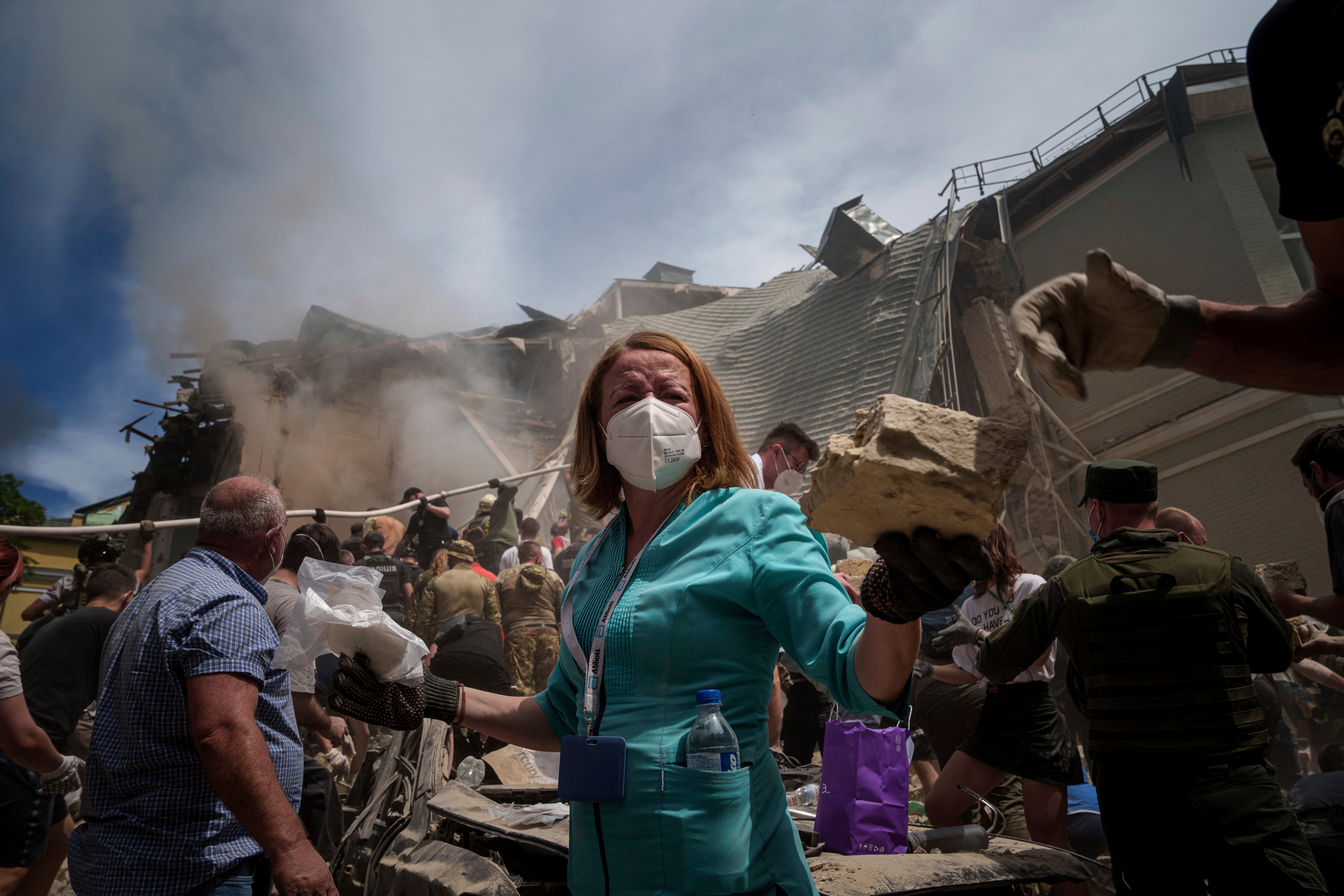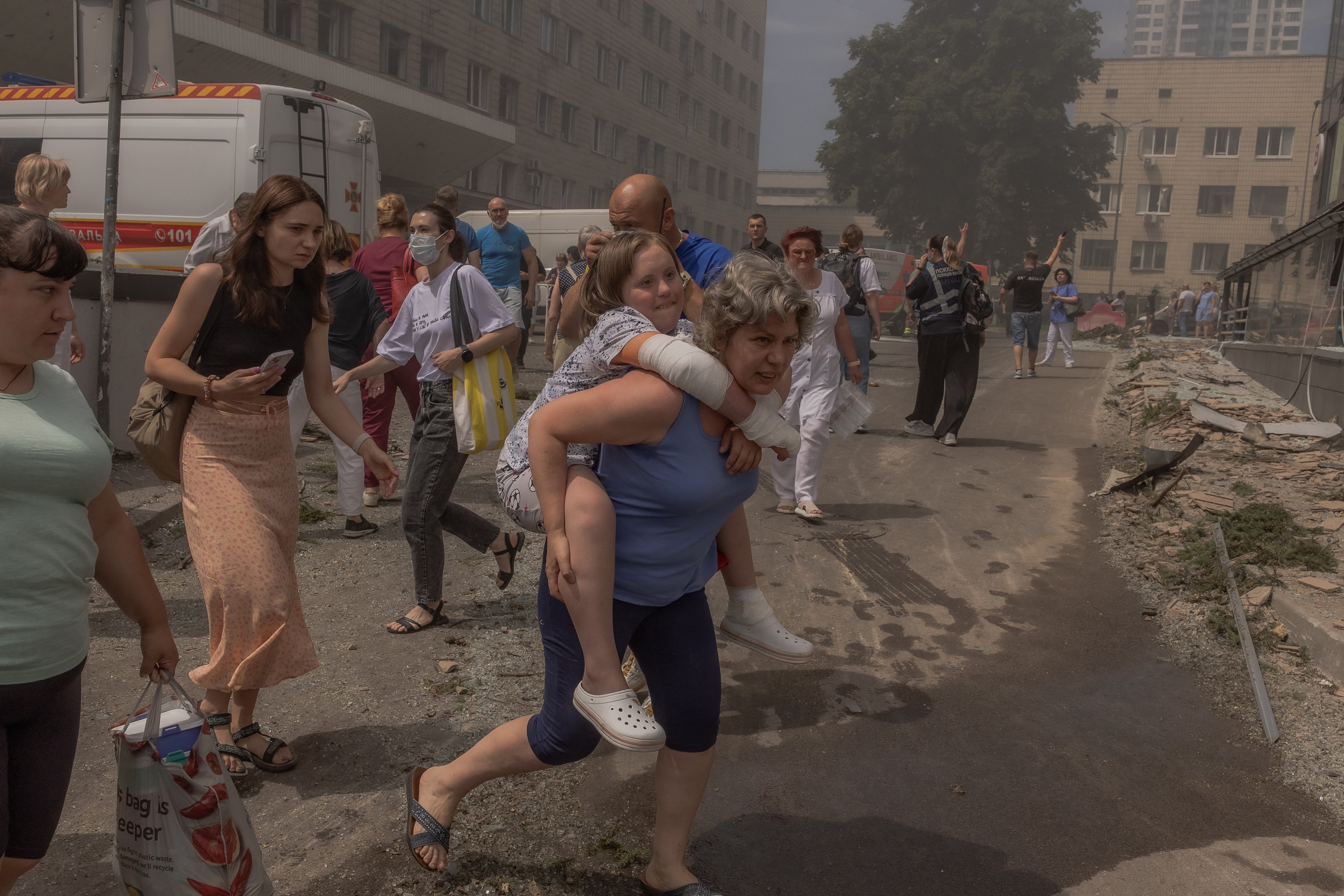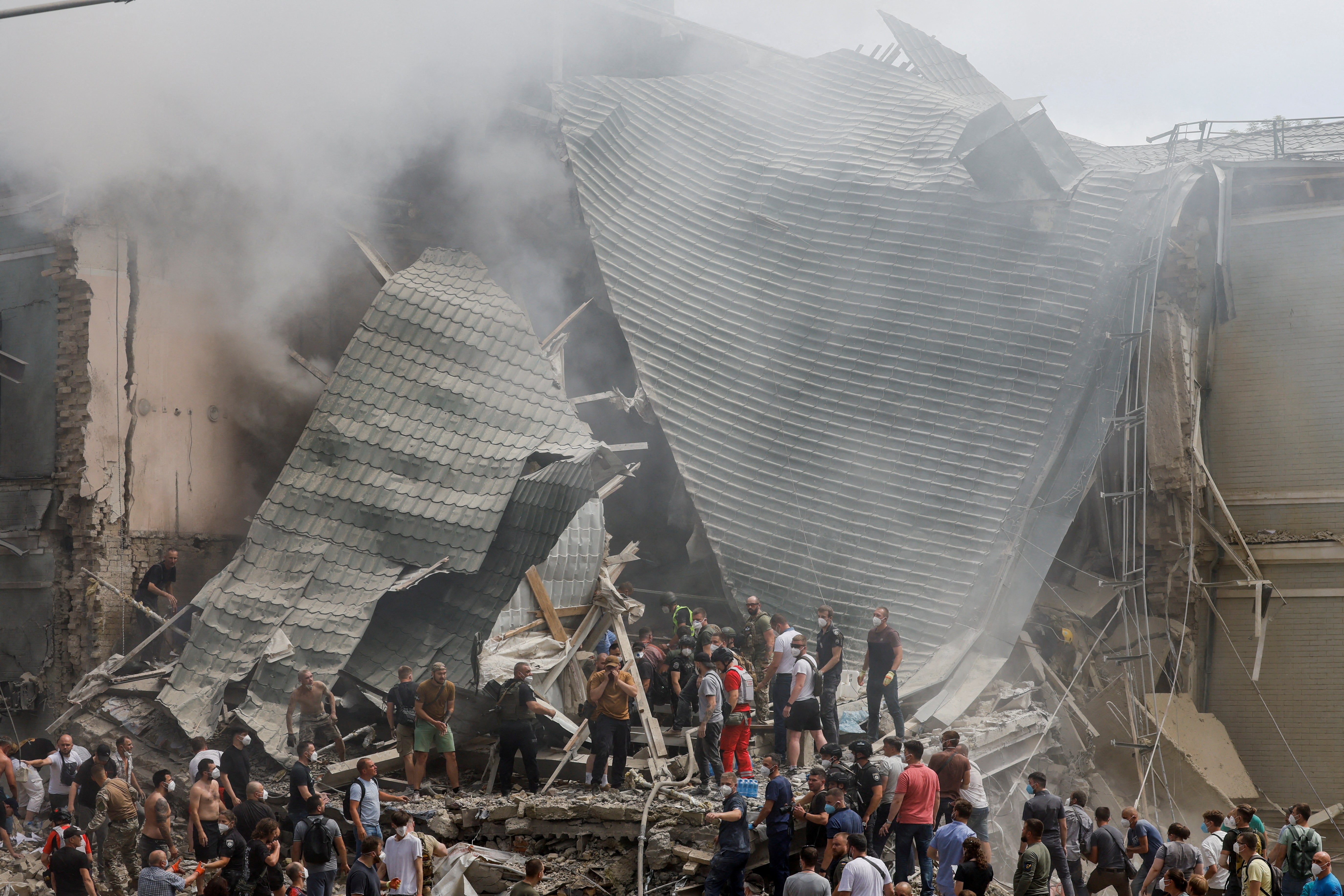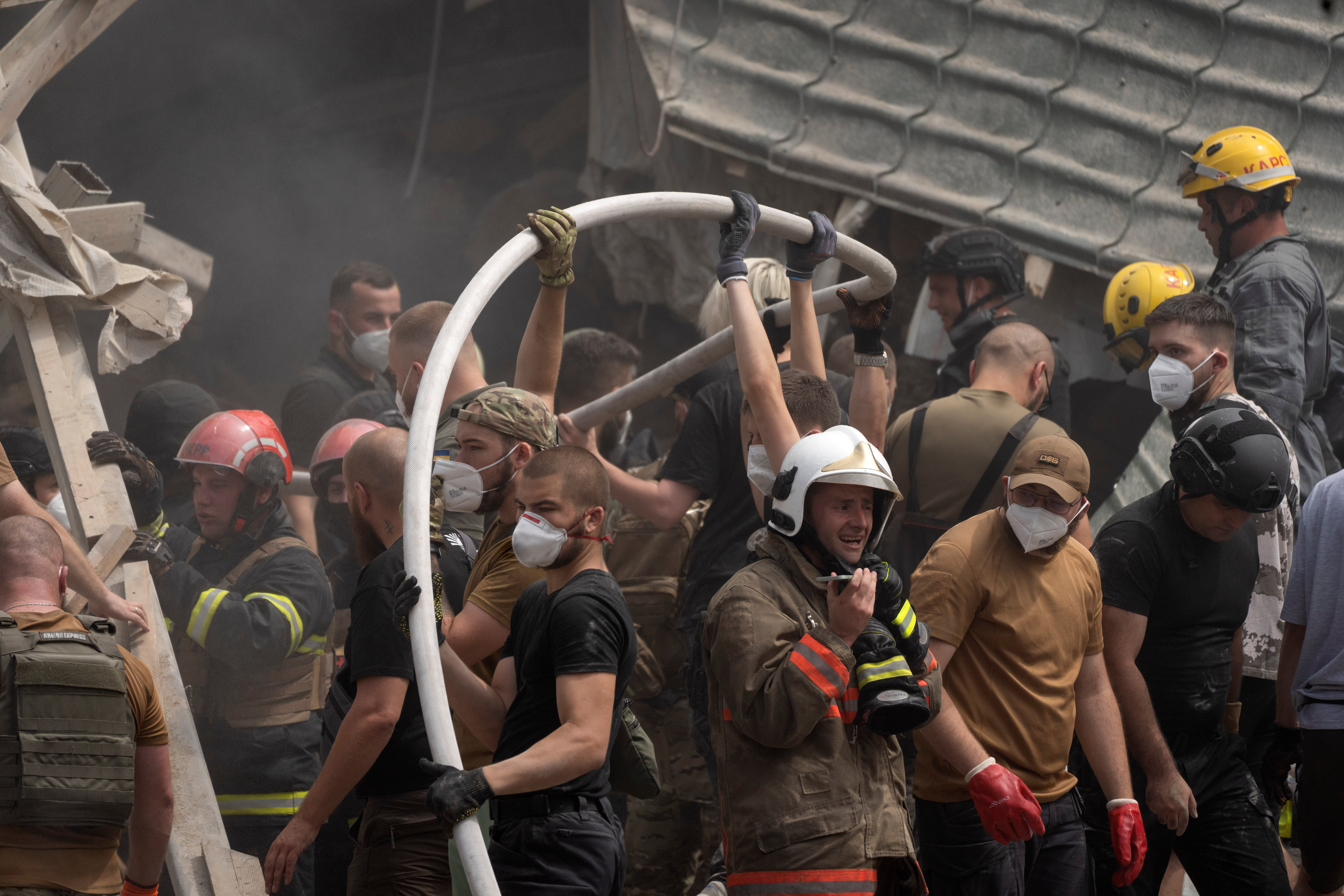“The whole room was full of blood”: Insights into the Russian missile attack on a Kyiv children’s hospital

ÖLena Danylova and her eight-year-old daughter watched as black smoke poured through the ceiling into the bomb shelter from which they had just escaped a Russian missile attack.
Moments earlier, her young daughter, whose name she wished to keep anonymous, had been preparing for a hernia operation at the Okhmatdyt Children’s Hospital in central Kyiv.
The doctor had prepared her for surgery on the fifth floor; the operation was to take place on the seventh floor. She was next in line.
Then they heard the first explosions, somewhere in the distance. The three of them – mother, daughter, doctor – stood rooted to the spot. All three knew that the most dangerous place in the event of a rocket attack is high up.
“Then we heard another explosion, a bigger one… and we ran as fast as we could down to the bunker,” she said.
When they reached the shelter, with dozens of children and parents in front of and behind them, they tried to remain calm. But the reality of what was happening there was horrifying.

The two bombs, believed to be Russian Kh-101 cruise missiles, had hit surrounding buildings, but one of the explosions had blown out the windows of the operating rooms on the sixth and seventh floors of the building, sending shards of glass flying at patients and surgeons. Olena’s daughter could have been just moments away from her surgery.
“The boy who was in front of my daughter was in the middle of surgery when the bomb hit, so they had to stop, wake him up and then run to the shelter,” she said. “They told us the whole room was covered in blood.”
And then there was a loud bang and everything went black. A third rocket had hit directly on their building.
The fire alarm sounded. The children began to cry. Black smoke filled the shelter.

Mother and daughter walked from one end of the shelter to the other, debating whether to risk inhaling smoke or go outside and potentially be hit by a Russian one-two punch, a tactic often used by Kremlin forces in which a second, third or even fourth missile is fired at a spot after rescue workers have already arrived on the scene. Their daughter “kept asking ‘what happens now?'”
As the smoke thickened, Olena decided they had to leave the shelter. “I was just in robot mode. I had to do what I had to do; I had to save my child; I had to make sure we were safe.”
“When we came out, there were many people, children, with all kinds of injuries. Some of them were red from the operations, mothers were holding them and covering them with blankets.
“It was a huge mess. Nobody knew what to do. Everything was covered with broken glass and shattered windows. We tried not to panic. But we saw a lot of smoke coming out of the buildings. We heard firefighters approaching.”

Olena and her daughter were caught up in one of Russia’s worst attacks since Vladimir Putin ordered the full-scale invasion of Ukraine in February 2022. At least 29 people were killed across Kyiv and at least three hospitals on both sides of the Dnipro River that divides the city were damaged. A doctor was among the two killed in Okhmatdyt, while children were among those killed elsewhere in the city.
The president’s office said the missiles had completely destroyed the toxicology building of the Okhmatdyt complex and damaged four other departments. An initiative to raise 100 million hryvnia (£1.9 million) for the hospital has already been launched.
Further attacks on Ukrainian President Volodymyr Zelensky’s hometown of Kryvyi Rih, 400 kilometers to the south, killed at least 10 people, while attacks in the eastern city of Pokrovsk in the Donetsk region left three people dead and more than 190 people injured.
A spokesman for the Ukrainian branch of the United Nations High Commissioner for Human Rights, whose office is near Okhmatdyt Hospital, described it as “truly one of the worst attacks I have witnessed during my time here.”

Ukrainian government officials described the attack as genocide. US President Joe Biden called it a “cruel reminder of Russia’s brutality.” Russia, meanwhile, falsely claimed that the destruction of the children’s hospital was the result of a misfired Ukrainian anti-aircraft missile. The UN considers this claim highly unlikely.
A video has already emerged that appears to show a Russian warhead flying towards the hospital seconds before the explosion.
Ukraine’s key allies met on Tuesday evening for the first of three days of the NATO summit, still reeling from the violence of an attack that appeared to be aimed at civilians in every respect.
“Putin sends his greetings to the NATO summit by bombing a children’s hospital,” wrote Lithuanian Foreign Minister Gabrielius Landsbergis. “As if there was any need for an explanation why Ukraine now needs all possible support and real guarantees for its security in the future.”
When Olena and her daughter finally returned home on Monday, they said they took sedatives, collapsed onto their beds and “tried to pull ourselves together.”
The doctor called her later. “Of course you know that the operation has to be postponed indefinitely,” he told her.
No matter, she thought, her daughter was fast asleep in the next room.




